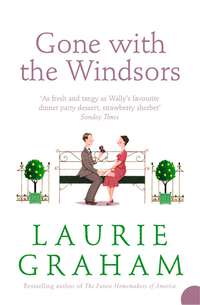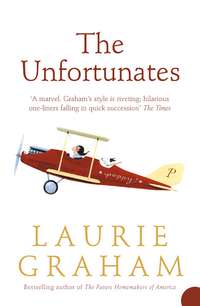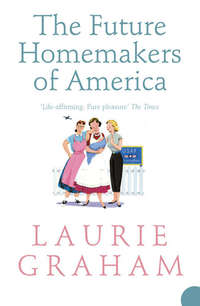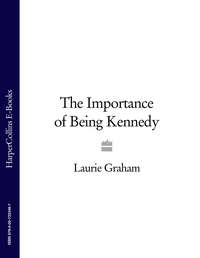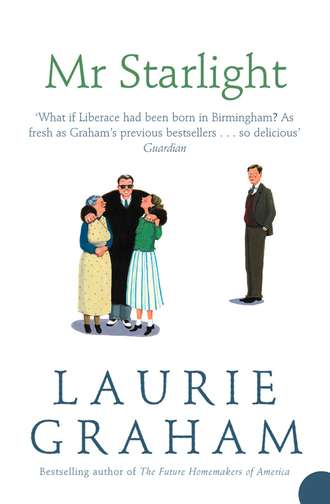
Полная версия
Mr Starlight

MR
STARLIGHT
Laurie Graham
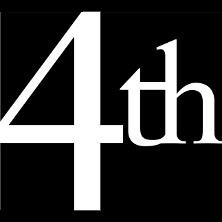

COPYRIGHT
Fourth Estate
An imprint of HarperCollinsPublishers Ltd. 1 London Bridge Street London SE1 9GF
www.harpercollins.co.uk
First published in Great Britain in 2004 by Fourth Estate
Copyright © Laurie Graham 2004
Laurie Graham asserts the right to be identified as the author of this work.
Cover illustration © Rachel Ross
A catalogue record for this book is available from the British Library
All rights reserved under International and PanAmerican Copyright Conventions. By payment of the required fees, you have been granted the nonexclusive, nontransferable right to access and read the text of this ebook on-screen. No part of this text may be reproduced, transmitted, downloaded, decompiled, reverse engineered, or stored in or introduced into any information storage and retrieval system, in any form or by any means, whether electronic or mechanical, now known or hereinafter invented, without the express written permission of HarperCollins ebooks
HarperCollinsPublishers has made every reasonable effort to ensure that any picture content and written content in this ebook has been included or removed in accordance with the contractual and technological constraints in operation at the time of publication
Source ISBN: 9780007306480
Ebook Edition © NOVEMBER 2012 ISBN: 9780007389087
Version: 2017-03-30
DEDICATION
Dedicated to
Caryl Avery and Les Zuke,
my A to Z friendship,
and
to my best boys,
Tony Bird and Charles Darwent
EPIGRAPH
Give my regards to Broadway
Remember me to Herald Square
Tell all the gang at Forty-Second Street
That I will soon be there
COHAN
CONTENTS
Cover
Title Page
Copyright
Dedication
Epigraph
One
Two
Three
Four
Five
Six
Seven
Eight
Nine
Ten
Eleven
Twelve
Thirteen
Fourteen
Fifteen
Sixteen
Seventeen
Eighteen
Nineteen
Twenty
Twenty-One
Twenty-Two
Twenty-Three
Twenty-Four
Twenty-Five
Twenty-Six
Twenty-Seven
Twenty-Eight
Twenty-Nine
Thirty
Thirty-One
Thirty-Two
Thirty-Three
Thirty-Four
Thirty-Five
Thirty-Six
Thirty-Seven
Thirty-Eight
Thirty-Nine
Keep Reading
About the Author
Also by Laurie Graham
About the Publisher
ONE
He had six bathrooms at the finish, every one of them done up to a different scheme, although most of them were never used. There was his, with a heart-shaped tub and a mirror on the ceiling, and the monogrammed towels folded just so, and nobody else supposed to go in there, only Pearl who looked after him. And then there was my favourite with a glass block floor and gold-plated dolphin taps, and a whole wall filled with water and tropical fish. Not that bathrooms interest me that much. Still, it’s funny to think how we started out in Ninevah Street, with a lav down the yard and a jerry under the bed, in case you needed to go in the night, and a tin bath dragged indoors and put on the hearthrug, but only for special occasions.
We all had baths when our Dilys was getting married, so that was quite a production, and I had another one, I remember, when I was bad with the measles and the doctor had been sent for. But generally speaking, you could go all year in our house and never see that tin tub. Until Sel started getting top billing and Mam got stars in her eyes. Ever after that, if it was club night, it was bath night.
I was in the trimming shop at Greely’s Motors in those days, working six in the morning till two in the afternoon. You could earn more doing a night shift but after I got jilted, the size of my pay packet didn’t seem to matter any more. Renée and I had been saving up, getting our little bits and pieces together for when we were married, but when she called it off, well, I lost heart. And if I worked the early shift it meant I had my evenings. I could do the clubs with our Selwyn, as his accompanist.
When we started out they billed us as the Boff Brothers but that soon changed. Soon it was Selwyn Boff, the Saltley Songster, with Cledwyn Boff on piano, only in smaller letters. It has been my experience that once your letters get smaller they’re unlikely to get bigger again. Then, as he developed a following he dropped the Boff and tried being just plain Selwyn.
‘Your own, your very own Selwyn,’ the emcee would say and by then nobody cared who was playing. As long as Sel was out front, holding the ladies’ hands, looking into their eyes, making out he was singing for nobody in the world but them, he could have had a chimpanzee on the piano stool. Mam used to say, ‘Did you play nicely last night, Cledwyn?’
I’d say, ‘I could have played bare-arsed with my elbows for all anybody would have noticed.’
And I’d duck before she could clout me.
Our mam’s profession was teaching pianoforte so we were all expected to learn when we were nippers. But Dilys apparently would never sit still and pay attention, so she was sent to tap dancing instead, and when Mam decided Sel had the makings of a singer he was sent to Miss Jaycock in Paradise Street, for voice and elocution. After that I got the piano to myself and when I joined the Boys’ Brigade I learned the trumpet too.
Mam believed everybody should be able to do a turn, even if it was only play ‘God Save the King’ with a comb and tissue paper, but Dilys never liked performing. She’d sidle off outside and hide down the yard if we had company, if she thought Mam was going to make her climb up on the table and do ‘You are my honey, Honeysuckle’, and then, later on, she did put up a lot of weight due to married life and you can’t dance if you’re heavy. It’s harmful to the knees.
I was the true musician of the family, but my brother did have another kind of talent and I never begrudged him that, not even for all the times he got written up in the Sunday papers and told a load of fibs or never even mentioned me. He may not have had the best voice in the world, and he never did learn to sight-sing, but he had the knack of showmanship. He could lift people out of themselves and send them home happy. That’s why he got bookings while trained musicians went hungry. But you can’t argue against box office takings. I suppose that’s what Uncle Teilo recognised in him.
Teilo wasn’t our real uncle, but he was bookings secretary at the Nechells Non-Political Club and he wasn’t without influence at the Birmingham Welsh and the Rover Sports and Social, and he’d shown a friendly interest in us from when we were young lads. Also, he was very fond of our mam. I believe he may have made her certain offers, over the years, only she was a bit hazy as to the whereabouts of Dad.
We had our debut at the Birmingham Welsh before the war. Sel was only ten. We were the first act of the evening, doing ‘Gilbert the Filbert’ and ‘I Don’t Want to Play in Your Yard’, and whatever we were paid, I don’t remember seeing any money. It must have gone straight into Mam’s purse. She only ever let us do Friday nights because Sel had school and I had work to get up for, but the Boff Brothers became quite a name, and when I came back after the war we picked up where we’d left off. Of course, by then Sel wasn’t a boy soprano any more. By then he’d been going to the pictures and getting some big ideas. ‘I’ll be appearing in a dinner suit from now on,’ he said.
Uncle Teilo said, ‘Oh yes? What did you do? Knock somebody over for their clothing coupons?’
But he’d been to Horace’s, the house clearance people, and bought a dead man’s suit.
‘I want the lights down,’ he said. ‘I want total darkness before I come on, then Cled’ll play a glissando and when the lights go up, there I’ll be.’
‘Oh, I don’t know,’ Uncle Teilo said. ‘How will folks see to drink?’
But he did agree to a few things. We moved up the billing to close the first half and we were allowed a lacy cloth on the top of the piano and a potted palm. Bloody thing had to be lugged on the bus every time, but Sel said it raised the tone. He wanted the audience to give proper order too and not walk in front of him with glasses of ale while he was singing, but that’s the kind of respect that has to be earned. Still, by the beginning of 1948 we were getting top billing and Sel announced he was handing in his notice at the Milk Maid ice cream factory and turning semi-professional.
Dilys said, ‘Oh, do be careful, Sel. The Milk Maid’s a good place to work.’
Mam said, ‘Well, there are only twenty-four hours in the day and he has to groom himself for stardom.’
Dilys said, ‘What about his benefits? What about the retirement scheme?’
Mam said, ‘Where he’s going he won’t need a Milk Maid pension.’
I said, ‘What I want to know is where does this leave me? We’re supposed to be a duo.’
He said, ‘We still can be, for the time being. Until things really take off. There comes a time when you have to decide what you want. A Milk Maid pension or fame? A long-service medal from Greely’s or a life?’
I said, ‘Why can’t you ever be satisfied?’
Mam said, ‘You’re a good little pianist, Cledwyn, but that’s all you’ll ever amount to. Selwyn’s a true performer. He gives his all.’
I suppose he started giving his all after he got his first shiny jacket. He’d decided the potted palm and the penguin suit weren’t enough, and he wanted to make himself more memorable, so he went off to London on a day return and came back with some glittery stuff that was meant for ladies’ evening gowns. Mrs Grimley, next door, ran it up for him on her sewing machine and the first time he wore it, at the Non-Political, there was nearly a riot. All those women pushing to get up front and touch it, Nechells not being a place where you saw a lot of gold lamé.
The next Saturday he went back down to Oxford Street for more supplies. Mrs Grimley said she couldn’t be doing with any more of it because of the fraying and the mess on her carpet, so he took it all to a tailor called Funkleman and had two more jackets made, one in silver lamé, one in rainbow glistenette. Funkleman thought our Sel was loopy but he took his money anyway.
After that he spent all his time thinking about suits and relied on me to do the musical groundwork, picking out new songs, trying out new arrangements. If we were doing both halves he’d change his whole outfit before the second set. He’d come running on and twirl around, so they could get a good look at his outfit. And the ladies appeared to like it. They didn’t seem to care if he was out of puff and his singing was affected. Sometimes we’d only do half of the second set because they kept calling to him, egging him on to dance around some more and come down to the front, and make goo-goo eyes at them and ask them their names. Married women with their husbands looking on. He was lucky one of them didn’t come over and thump him, but it never happened. Sel always got away with murder.
So the routine was, if we had a booking I’d go straight to bed when I got home from Greely’s, to try and get some sleep, although I hardly ever did, what with the daylight streaming in and Sel upstairs practising his twirling, like an elephant with clogs on. Then, about five o’clock Mam would start filling the tin tub, so he could have a soak before tea. She’d put towels on the clothes horse and arrange it round him like a screen so he could be private. I don’t know why she bothered because she was in and out every minute, topping up the water and scrubbing his back. ‘Don’t mind me,’ she’d say. ‘You haven’t got anything I haven’t seen.’
And he didn’t mind. He’d just sit there smiling like a great pink bab, steaming and smelling of white heather bath salts.
‘Why don’t you get in after him, Cled?’ she’d say. ‘It’s a pity to waste the hot water.’
But I wouldn’t. A stand-up wash in the kitchen suited me and I wouldn’t have put it past him to do a jimmy riddle in the tub, just to spite me.
As it was, I’d had to move out of our bedroom. ‘He needs a room to himself,’ Mam said, ‘so he can work on his presentation and conserve himself for his public.’
She got him a full-length mirror and made a star out of a silver cake board and stuck it to the door, and I had to move downstairs and have a zed bed in the front room.
I said, ‘Why can’t he have the front room? He could hang his stuff from the picture rail.’
We never used that front room. Nobody did in those days. It was kept for funeral teas, but luckily we never seemed to have any.
‘And have everybody peering in,’ she said, ‘spying on his costumes? No, no. That wouldn’t do. You have to understand, Cledwyn. A star has to keep his air of mystiquerie.’
So everybody peered in at me instead, especially Mrs E from next door, because the front-room curtains were the kind that only looked like curtains. You couldn’t actually close them. I always waited till I was under the covers before I took my trousers off.
We were getting three or four bookings a week, travelling as far as Wolverhampton or Castle Bromwich sometimes, struggling on the bus with his shiny jacket on a special hanger and him with his collar up and sunglasses on at seven o’clock on a January night so as not to be recognised.
‘I’ll have to get a car,’ he kept saying. ‘I’ll buy it and you can drive me.’
I wouldn’t have minded.
‘We’ll have tartan rugs in the back,’ he said. ‘And a personalised number plate. SEL 1.’
We were doing all right for money by then but Sel could spend it faster than they could mint it. Day trips to London. Cuff links and fancy shirts and high-heeled boots from Drury Lane. He kept a log of what he’d worn where, so he wouldn’t repeat himself. He bought silly things as well. Knick-knacks for his bedroom. A suitcase with his initials on it.
Mam encouraged him, of course. ‘Beautiful,’ she’d say. ‘You’ve got very good taste, Selwyn, like me.’
But it would have been nice if he’d put a few quid aside every week, like I did. There were things needed doing around the house. The roof needed re-tiling and the gas stove was from the year dot. And then there were the sanitary arrangements. The council were bringing in home improvement grants and not before time.
I said, ‘I think this is something we should look into. Get this place brought up to standard. We should do it for Mam.’
The way it worked was you paid half and the council paid half, and you could get a proper bathroom put in, next to the kitchen. Mrs Grimley had signed up for it and the Edkinses at number 15, but Sel wasn’t interested.
He said, ‘Mam, do you want the upheaval of getting a bathroom?’
‘No, I don’t think so,’ she said. ‘Where would we keep the coal? And how would we go on without our convenience?’
That was what they did. Took your coal house and the outside lav and converted them into all mod cons.
I said, ‘That’s easy. We can get a bunker for the coal and we won’t need an outside lav any more because we’ll have an inside one. And lovely hot baths whenever you want them. We can put a shelf up, for your Amami and your talc. You’ll be like Cleopatra.’
‘I don’t know,’ she said. She was wavering, I could tell.
I said to Sel, ‘Tell her how nice it’d be. No more lugging in bathwater for you every club night.’
‘Cled,’ he said, ‘frankly I’m thinking bigger than Ninevah Street. Bigger and better, onward and ever upward. I’ll be moving on soon so what’s the point of spending money on this dump?’
I said, ‘Oh, well, then, you’ll be moving on so you’re all right. What about the rest of us? How about a few comforts for Mam in her old age?’
‘You plum duff,’ he said. ‘When I move on, she’ll move on. And so will you, unless you intend trimming car seats the rest of your life. I’m on my way to the big time, our kid, and you and Mam are invited along.’
But his first move out of Ninevah Street was nearly his last. He came close to moving on somewhere nobody else can follow.
TWO
It was September of 1949 when it happened. It had been so hot the tar was melting on the roads and there wasn’t a breath of air. You didn’t feel like doing anything, only sitting still in your vest and pants and having a glass of lemonade, but we had club appearances three nights in a row so we had to stir ourselves, and of course we got a very poor turnout. People were staying at home, sitting out on their front steps, hoping for a cooling breeze. Things were so half-hearted the night we played the Alma Street Liberal I said we should cancel the rest of our bookings till the weather broke, but His Numps wouldn’t hear of it.
‘Sel Boff never cancels,’ he said. ‘The show goes on.’
So the show did go on. We were appearing at the Birmingham Welsh, with a novelty gargler who did the William Tell overture, Chucky Crawford doing his old card tricks and a vocalist called Avril who was just starting out, dark honey blonde with a nice frontage and a big voice for such a pint pot. She was making a play for Sel, straightening her stocking seams in front of him, getting him to fasten her necklace. I could have saved her the trouble. When it was showtime he had a one-track mind.
He seemed all right in the first half. We did ‘Start the Day With a Smile’, ‘Where or When’ and ‘You Rascal You’, and he’d acted the giddy goat as usual, running around, showing the ladies his new cummerbund, getting into a sweat.
I said, ‘I don’t know why you insist on wearing a jacket in this heat. Why don’t you get yourself a short-sleeved shirt like me?’
‘Because I don’t want to look like a PT instructor,’ he said. ‘Because I’m tonight’s star turn and my public has expectations.’
Then, just before we were due back on, he said, ‘Cled, I don’t feel too clever.’
I said, ‘Is it your guts?’
‘No,’ he said, ‘I keep coming over dizzy. Ask Mostyn to give us another five minutes.’
Mostyn was the emcee. He said, ‘It is stifling tonight. I’ll open another window.’
I fetched a glass of water and carried it through, and there was Sel, collapsed on the floor, turning blue around the mouth. I thought it was his heart. You do hear of it happening in young men. His eyes were open but he appeared not to hear me. We needed to phone for an ambulance but the telephone was in Mostyn’s office and he had to find the key.
Avril was shouting, ‘Hurry up, you silly old sod. There’s a boy dying while you’re going through your pockets.’
‘I am hurrying,’ he said. ‘You go out front and keep the punters happy.’
‘Send the gargler on,’ she said. ‘I’m not leaving Selwyn.’
Chucky Crawford said, ‘Don’t worry, I’ll go back on.’
By the time Mostyn came back from the telephone Sel’s eyes had rolled back in their sockets.
Avril said, ‘Did you tell them to hurry?’
Mostyn said, ‘Ambulances always hurry. And you’ve got a few things to learn about show business, my girl. Rule number one, whatever’s going on backstage, you look after your audience.’
‘Mostyn,’ she said, ‘there’s hardly anybody in and as long as the beer keeps flowing they won’t complain.’
And it’s true. It’s been my experience that people would rather take part in a heart attack than watch card tricks any day.
That ambulance had no great distance to come but it seemed to take hours. We were in a cubbyhole that passed for a dressing room, boxes of Christmas trimmings piled up on the shelves, mops and buckets in the corner, wondering if Sel was going to last the night.
Avril had his head cradled on her lap, stroking his hair. ‘Beautiful curls,’ she said.
I could have told her where those curls came from: a Toni home perm done in our Dilys’s living room.
When they arrived they gave him oxygen and asked me a lot of questions. All I knew was he’d had a ham salad and a glass of orange squash for his tea, the same as I had except I’d let him have my spring onions. I didn’t like to eat anything like that on a club night, in case I got lucky with the ladies. Also, he’d had brown pickle instead of salad cream, and three rock cakes. He’d seemed right enough during the first set apart from missing a line or two, but he did that sometimes, when he ran out of wind. He never breathed properly, for a singer. They said they were rushing him to the General Hospital and I might want to notify his next of kin.
Then Uncle Teilo turned up, alerted by Mostyn. ‘Oh dear,’ he kept saying. ‘My star turn. Oh dear, oh dear.’
By rights I should have ridden in the ambulance. I was family. But Teilo whispered something to the ambulance people, elbowed his way in.
‘You go and fetch your mam,’ he said. ‘Don’t worry about Sel. I’ll make sure he gets a top doctor.’
I’d have had to wait for a bus only a very nice couple called Jean and Dennis offered to run me home in their Hillman Minx.
‘We couldn’t bear for anything to happen to him,’ Jean said. ‘We follow him all over, don’t we, Dennis?’
He had fans like that even in those days. The husband didn’t say a lot. It always was the ladies he appealed to, but still, that Dennis drove like the clappers to get me back to Ninevah Street.
Jean said, ‘And then we’ll run you to the hospital, won’t we, Dennis? Who’d have thought it! Selwyn Boff’s brother riding in our motor!’
‘Did you loosen his cummerbund?’ That was the first thing Mam wanted to know. ‘Did you tell them he was invalided out of the RAF?’
I could have strangled her. Three times she ran back into the house, fetching things to take to the hospital. Indigestion pills and his hairbrush and then the evening paper, for the crossword puzzle, and all the while the car was ticking over, burning juice.
I said, ‘Leave that! He’s in no state for crosswords.’
‘He will be,’ she said. ‘He’ll perk up once he knows I’m there. Did you tell them he can only drink sterilised milk?’
I said, ‘He’s unconscious, Mam. He won’t be drinking any milk tonight.’
She said, ‘Well, if they give him the wrong milk and he comes out in hives we’ll have you to thank.’
I said, ‘I’m not his keeper.’
‘Yes you are,’ she said. ‘That’s exactly what you are. He’s only a bab.’
They allowed us to see him for five minutes but he was in a big machine, to help him with his breathing so we couldn’t really see him at all. They said they hoped to be able to tell us more in the morning.
Mam said, ‘I’ll just brush his hair. Tell him I’m here.’


